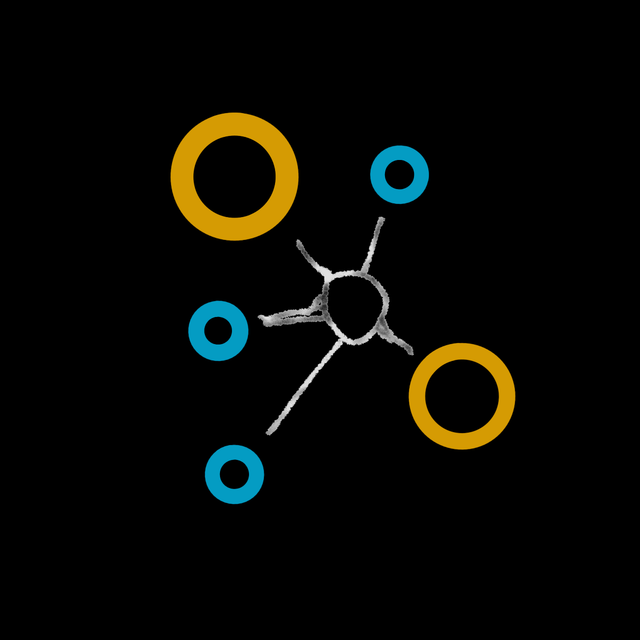PRE-INCUBATION FRAMEWORK OF SOFTWARE STARTUP USING GROW COACHING MODEL, BLOCK SCHEDULING AND DAILY SCRUM
##plugins.themes.academic_pro.article.main##
Abstract
Pre-incubation of software startup is a training and coaching activity to improve understanding of knowledge and skills in developing software. The problem that occurs between education in universities and business incubators is the gap, namely the lack of mastery of knowledge and skills in developing software. The solution to this problem is to develop a framework for pre-incubation activities. In this framework, the methodology is used as a combination of the GROW coaching model, block scheduling, and daily stand-up meeting (daily scrum). If before participating in the pre-incubation the tenant takes 4 months to 6 months to build a website application, then after participating in the pre-incubation the tenant can create a website application within 1 week to 4 weeks.
##plugins.themes.academic_pro.article.details##

This work is licensed under a Creative Commons Attribution-NoDerivatives 4.0 International License.
References
- Dag Håkon Haneberg and Lise Aaboen, “Incubation of technology-based student ventures: The importance of networking and team recruitment”, Technology in Society, Elsevier LTD, 2020.
- M. Wright, D.S. Siegel, P. Mustar, "An emerging ecosystem for student start-ups", J. Technol. Tran. 42 (4) (2017) 909–922
- Stan Custers, "The impact of the pre-incubation program on competences of future entrepreneurs: Case study of a Dutch pre-incubator", Master Thesis Innovation & Entrepreneurship - Business Administration Nijmegen School of Management, Radboud University, 2019
- Saul W. Brown and Anthony M Grant, “From GROW to GROUP: Theoretical issues and a practical model for group coaching in organisations”, Coaching: An International Journal of Theory, Research and Practice Vol. 3, No. 1, March 2010, 30-40
- Mary Devine at all, "How can coaching make a positive impact within educational settings?", Elsevier LTD, Social and Behavioral Sciences 93 (2013) 1382 – 1389
- C.O. Okorie et all, "Zoom-based GROW coaching intervention for improving subjective well-being in a sample of school administrators: A randomized control trial" Elsevier, https://doi.org/10.1016/j.invent.2022.100549
- K. Mattox at all, "The Effect of Block Scheduling on Middle School Students’ Mathematics Achievement", NASPP Bulletin, Vol. 89 No.642 March 2005
- Noor Hisham Jalania, “Efficiency Comparisons between Example-Problem-Based Learning and Teacher-Centered Learning in the Teaching of Circuit Theory”Elsevier LTD, Social and Behavioral Sciences 204 (2015) 153– 163
- Dawood AlHamdani, "Exploring Students’ Learning Style at a Gulf University: A Contributing Factor to Effective Instruction", Elsevier, Procedia -Social and Behavioral Sciences Volume 176, 20 February 2015, Pages 124-128
- Kresna Dwi Prasetya at al, “Effectiveness Analysis of Distributed Scrum Model Compared to Waterfall approach in Third-Party Application Development”, Elsevier, Procedia Computer Science 179 (2021) 103-111
- Howard Lei at all, "A statistical analysis of the effects of Scrum and Kanban on software development projects", Elsevier, Robotics and Computer-Integrated Manufacturing Volume 43, February 2017, Pages 59-67
- Viktoria stray at al, "The Daily Stand-Up Meeting: A Grounded Theory Study", The Journal of Systems & Software (2016), doi: 10.1016/j.jss.2016.01.004
- Natalya Prokofyeva, “Introductory Programming Training of First Year Students”, Elsevier, Procedia Computer Science 104 (2017) 286 – 293
- Kahirol Mohd Salleh at all, "Competency of adult learners in learning: Application of the Iceberg Competency Model", Elsevier LTD, Social and Behavioral Sciences 204 (2015) 326 – 334
- Hrafnhildur SifSverrisdottir, "The Role of the Product Owner in Scrum-comparison between Theory and Practices", Elsevier, Procedia - Social and Behavioral Sciences, Volume 119, 19 March 2014, Pages 257-267
- Dan Radigan, "Introducing Lean Canvas Model Adaptation in the Scrum Software Testing", 2020.[Online]. Available: Atlasian, https://www.atlassian.com/agile/scrum/standups. [Accessed Oct 10, 2020]
- Eval Wari, "Coaching dan Mentoring dengan GROW Model untuk Peningkatan Kinerja Tim Anda", February 27, 2021. [ONLINE] Avaliable:Leadership Resources, https://leadershipresources.co.id/business/coaching-dan-mentoring-dengan-grow-model-untuk-peningkatan-kinerja-tim-anda. [Accessed February 27, 2021]
- Tim Kurikulum KKNI APTIKOM, Pengembangan Kurikulum KKNI Berdasarkan OBE Bidang Ilmu Informatika dan Komputer, Tim Kurikulum KKNI APTIKOM, Jakarta, 2019.
Similar Articles
- Sendi Permana, Rosadi Rosadi, Nikki Nikki, APPLICATION OF CLASSIFICATION ALGORITHM FOR SALES PREDICTION , TEKNOKOM: Vol. 5 No. 2 (2022): TEKNOKOM
You may also start an advanced similarity search for this article.
Most read articles by the same author(s)
- Eko Heri Susanto, Ahmad Faisal Rizal, I Putu Indra Wijaya Suwina, IMPROVING EXAMPLE-PROBLEM-BASED-LEARNING (EPBL) WITH GROW COACHING MODEL AND DESIGN SPRINT TO OPTIMIZE PRE-INCUBATION CURRICULUM: CASE STUDY OF USER INTERFACE DESIGN , TEKNOKOM: Vol. 6 No. 2 (2023): TEKNOKOM


 https://ijeeemi.poltekkesdepkes-sby.ac.id/pages/pulsayuk/
https://ijeeemi.poltekkesdepkes-sby.ac.id/pages/pulsayuk/
